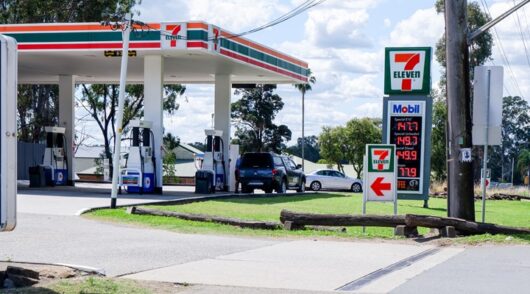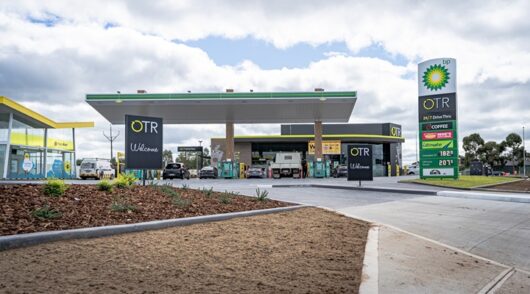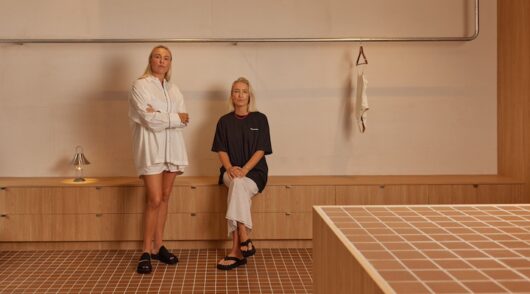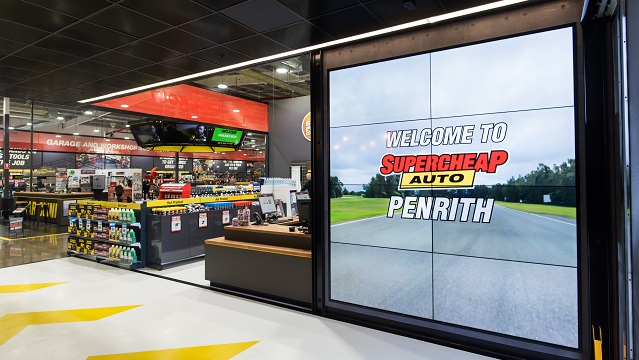
Super Retail Group’s investment in omnichannel retail over the last few years has paid off, enabling it to ramp up its existing click-and-collect offering to meet increased demand from Covid-wary customers and fulfil Black Friday-like levels of online shopping with limited blowback.
Online sales across the group’s Supercheap Auto, BCF, Rebel and Macpac businesses totalled $290.5 million, representing 10 per cent of total sales in FY20, a 44.4 per cent increase on the prior corresponding period.
Most of this growth occurred in the fourth quarter, when online sales more than doubled on the prior corresponding period, accounting for around 15 per cent of total sales.
In several weeks during the peak Covid lockdown period, online sales accounted for between 30 and 40 per cent of total sales at Rebel, a level that Super Retail Group managing director and CEO Anthony Heraghty compared to Black Friday.
But the company’s true achievement, according to Heraghty, is that it was able to handle the surge in online shopping while providing a similar if not better customer experience.
The company’s NPS, a measure of customer satisfaction, rose 1.8 per cent in the year to 60.7. This is despite the fact that Super Retail Group didn’t have the opportunity to prepare for the increase in orders the way it usually does ahead of known shopping events like Black Friday.
The company was not immune to delivery delays, however; and Rebel suffered from inventory issues related to a cyber attack on Toll earlier this year, showing that there is “more work to be done”, according to Heraghty.
Still, a combination of group initiatives – such as the switch to digital catalogs – and permanent changes in consumer behaviour due to Covid-19 – more than one million customers shopped online with the group for the first time in FY20 – is likely to make e-commerce even more of a growth driver in the years ahead.
Heraghty told investors and analysts on Monday that online sales have “resettled” at a higher level than they were pre-Covid.
Together with the company’s category-leading positions in the auto, sports and camping and outdoor sectors, as well as broader trends towards health and fitness, Super Retail Group is well positioned to grow despite macroeconomic conditions, he said.
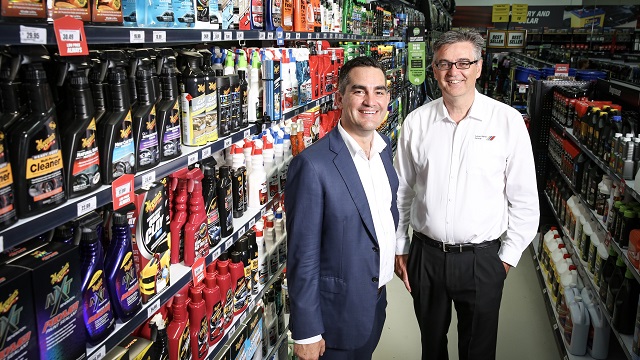
The group reported total sales of $2.83 billion in FY20, a 4.2 per cent increase on the prior corresponding period, and a 3.6 per cent increase when comparing like-for-like sales.
In FY20, over half of online sales (57 per cent) were delivered to customers’ homes; the remainder (43 per cent) were picked up from stores via click-and-collect.
EBITDA excluding the impact of the AASB 16 was $328.1 million, a 4.3 per cent increase year on year. Taking the new leasing standard into account, EBITDA was $533.2 million.
EBIT excluding the impact of the new leasing standard was $236.1 million, a 3.5 per cent increase year on year. Including the new leasing standard, it was $265 million.
Supercheap Auto continued to be the group’s leading business, accounting for 53 per cent of total EBIT, followed by Rebel, which accounted for 38 per cent. BCF accounted for 6 per cent of group EBIT, and Macpac contributed 3 per cent.
Profit was down 16.7 per cent on the prior year to $116.1 million. After adjusting for items not included in total segment NPAT, and excluding AASB 16, normalised NPAT was up 1 per cent to $154.1 million.
The group’s operating cash flow increased in the year due to the new leasing standard and an improvement in working capital, as well as lower net inventory investment, lease payment deferrals and a shift in tax payments. However, the benefits of these changes are expected to reverse in the next financial year.
The group also received $6.5 million in wage support from the Australian and New Zealand governments in FY20. The Macpac business qualified for JobKeeper in Australia, and Macpac and Supercheap Auto qualified for the government’s wage subsidy in New Zealand. The Australian wage subsidy is expected to end in September, while the New Zealand subsidy already has.
Excluding $939.3 million in lease liabilities, the group was in a net cash position of $37.3 million as at the end of FY20, an improvement of $424 million compared to the prior corresponding period.
Super Retail Group’s balance sheet was strengthened by its recent $203 million equity raising, which was completed in July. It has no net bank debt.
It declared a fully franked dividend of 19.5 cents per share, and has also announced a “thank you” bonus for employees, with full-time store staff expected to receive approximately $1,000.


